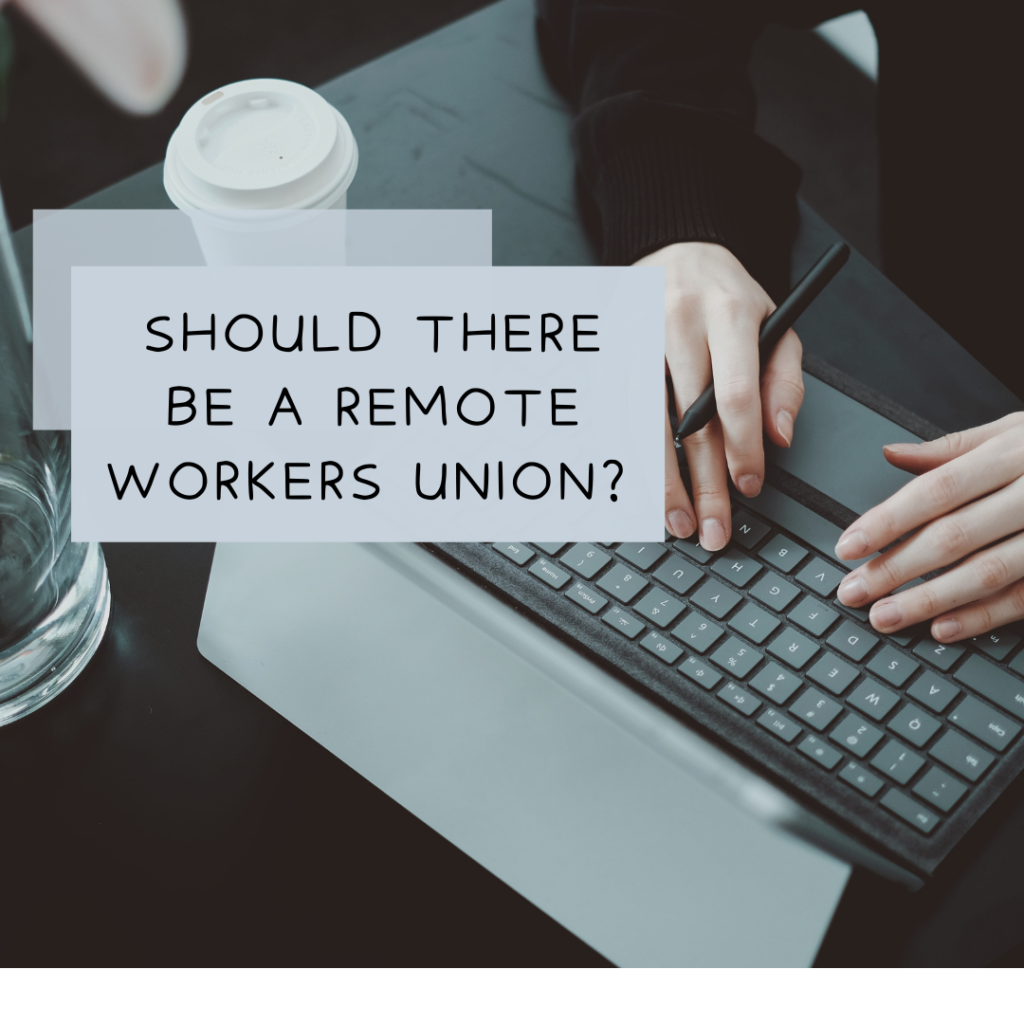One of the great things about working remotely is freedom. We have the freedom to pursue our own talents and growth. We have the freedom to set our own schedules. We also have the freedom to fail—and fail bigtime—without much if any safety net in place.
A lack of protection for remote workers leads to various causes of concern including:
- Being overworked and underpaid
- Struggling to manage a life/work balance
- Constant monitoring by clients/employers
- Physical and emotional health concerns related to working remotely
Does unionizing sacrifice our freedoms in favor of security? Some might say yes. Others might say that WFH professionals should unionize.
In basic terms, here are some general pros and cons of creating a remote workers union that we can consider:
Remote Workers Union: The Pros
For those who are concerned about workplace discrimination, unfair wages, and hold an interest in affecting political policies, a remote workers union might sound ideal. Benefits include:
- Worker Protection: Unions make it nearly impossible to hire and terminate unfairly, which can lead to greater job security and opportunities.
- Secured Wages and Benefits: Collective bargaining encourages higher wages for union-based workers.
- Political Advantage: Unions tend to carry significant political pull, allowing them to influence laws and policies to their advantage.
Remote Workers Union: The Cons
For those who are concerned about maintaining individual liberties and personal responsibility while keeping the cost of doing business low, workers unions might be less than ideal. Downfalls of a remote workers union include:
- Paying Union Dues: Joining a closed union requires the employee to pay a fee, sometimes requiring a deduction of up to 15% of their salary.
- Discouraged Individuality: Workers are bound to the decisions made by the union and a “group think” mentality can discourage individual expression.
- Promotion and Termination Hinderances: The same protections that unions provide also make it difficult for employers to promote and terminate deserving employees.
- Rising Costs for Employers: Hiring unionized workers can be more expensive. Unions can also lead to legal actions, which can be costly.
Both sides of the issue seem to have valid points. Maybe a clear and agreeable work-from-home policy will serve you just as well. Are you favor or against creating a remote workers union? Do these help or hinder the common concerns that we face as remote workers?

